MAI QUYEN (Synthesis)
Following reports of Russia's possible deployment of tactical nuclear weapons in Belarus, Japan, as the rotating chair of the Group of Seven (G7), said it would impose additional sanctions on Moscow based on consensus among the remaining members at the recent summit.
Russian President Putin (right) and his Belarusian counterpart Lukashenko.
Speaking on May 26, Japanese Chief Cabinet Secretary Hirokazu Matsuno warned that Russia's move in Belarus would further escalate the situation surrounding the Ukraine war. "As the only country to have suffered atomic bombings during wartime, Japan will never accept Russia's nuclear threat, let alone its deployment," Matsuno said at a regular press conference.
Earlier, the administration of US President Joe Biden also strongly condemned Russia's "irresponsible behavior". In a warning, US State Department spokesman Matthew Miller reiterated Washington's view that the use of chemical, biological or nuclear weapons in the current conflict in Eastern Europe would lead to responses with "serious consequences". On the same day, the European Union said the bloc continues to closely monitor Russia's moves and will respond when appropriate.
The statement by the US and its allies came after Russia signed an agreement to store tactical nuclear weapons at a facility in Belarus. This would be the Kremlin's first deployment of such weapons outside Russia since the collapse of the Soviet Union in 1991. Speaking on May 25, Russian Defense Minister Sergei Shoigu said the US and its allies were waging an extensive "proxy war" against Moscow. Amid extremely serious escalating threats on the border, Russian and Belarusian officials agreed to respond in the military -nuclear sphere to the hostility from the West.
According to independent military analyst Aliaksandr Alesin, about two-thirds of Russia’s intermediate-range nuclear missile stockpile was stored in Belarus during the Cold War. There are now dozens of Soviet-era storage facilities that are still in use.
Russia's tactical nuclear weapons superiority
Under the Nuclear Non-Proliferation Treaty, no nuclear power can transfer nuclear weapons or technology to a non-nuclear state. However, weapons can be deployed beyond the borders of that state if they remain under that state’s control. Russian President Vladimir Putin repeatedly said in March that any nuclear weapons transferred to Belarus would remain under Moscow’s control. Putin also made it clear that the decision was similar to what the United States has long done on the territory of its allies.
According to information from Russia, the construction of tactical nuclear weapons storage facilities in Belarus will be completed before July 1. Speaking at the meeting of the Supreme Eurasian Economic Council in
MOSCOW, May 25 (Reuters) - Belarusian President Alexander Lukashenko said on Thursday that nuclear warheads have begun to be delivered to the country. The Kremlin has not confirmed the move, but Russian Defense Minister Sergei Shoigu said earlier that Moscow had delivered Iskander-M missiles capable of carrying conventional or nuclear warheads to the Belarusian armed forces. A number of Su-25 aircraft have also been converted to carry nuclear weapons.
According to military experts, tactical nuclear weapons are used to destroy enemy troops and weapons on the battlefield. They usually have a relatively short range and much lower yield than strategic nuclear weapons designed to destroy cities. Currently, Russia is considered to have a superior advantage over the United States and the North Atlantic Treaty Organization (NATO) in the number of tactical nuclear weapons. According to estimates, Washington possesses about 200 tactical nuclear weapons, half of which are located in bases in Europe. As for Russia, it is believed that this country has about 2,000 tactical nuclear weapons in operation.
Source link


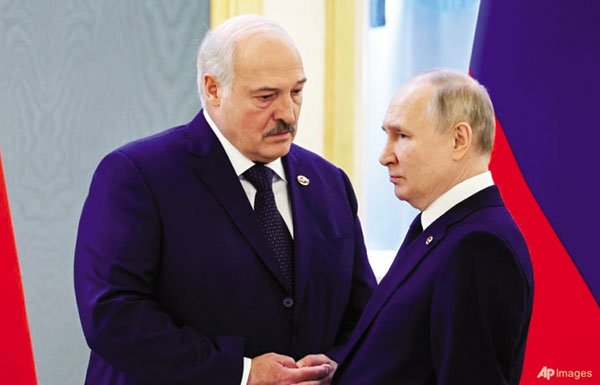
![[Photo] Prime Minister Pham Minh Chinh receives Rabbi Yoav Ben Tzur, Israeli Minister of Labor](https://vphoto.vietnam.vn/thumb/1200x675/vietnam/resource/IMAGE/2025/5/21/511bf6664512413ca5a275cbf3fb2f65)
![[Photo] Scientific workshop "Building a socialist model associated with socialist people in Hai Phong city in the period of 2025-2030 and the following years"](https://vphoto.vietnam.vn/thumb/1200x675/vietnam/resource/IMAGE/2025/5/21/5098e06c813243b1bf5670f9dc20ad0a)

![[Photo] Determining the pairs in the team semi-finals of the National Table Tennis Championship of Nhan Dan Newspaper](https://vphoto.vietnam.vn/thumb/1200x675/vietnam/resource/IMAGE/2025/5/21/eacbf7ae6a59497e9ae5da8e63d227bf)

![[Photo] Prime Minister Pham Minh Chinh attends the groundbreaking ceremony of Trump International Hung Yen Project](https://vphoto.vietnam.vn/thumb/1200x675/vietnam/resource/IMAGE/2025/5/21/ca84b87a74da4cddb2992a86966284cf)




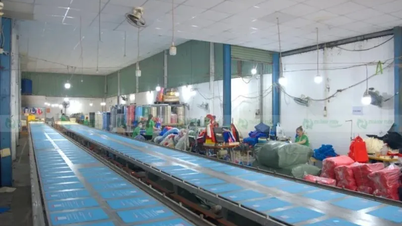









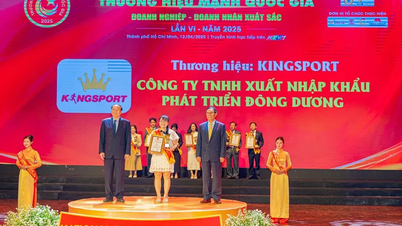




































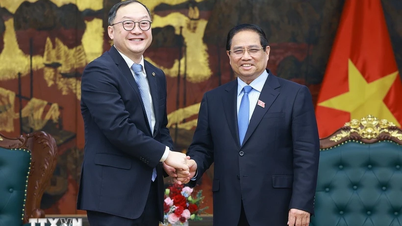








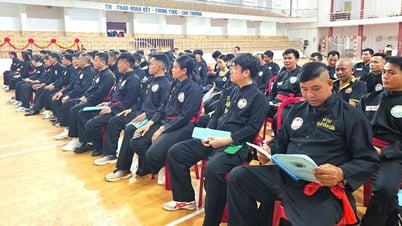
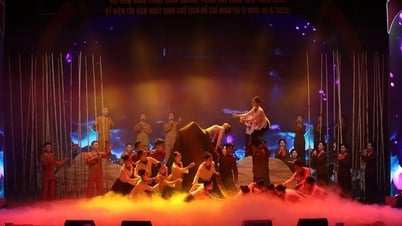

























Comment (0)